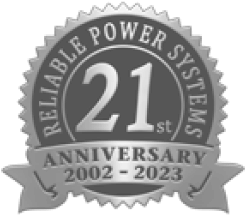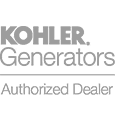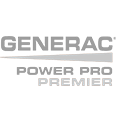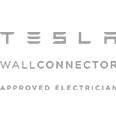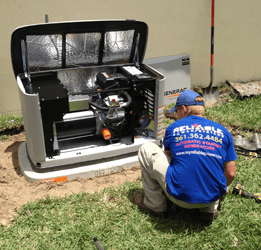 If you’re looking for a generator to ensure that your home will always have an electrical supply, a generator is a great investment. There are many types available on the market, and each generator type has its own characteristics. From the type of power it runs on to the portability of the unit, there are a couple of different things you’ll want to explore when trying to decide on new generators.
If you’re looking for a generator to ensure that your home will always have an electrical supply, a generator is a great investment. There are many types available on the market, and each generator type has its own characteristics. From the type of power it runs on to the portability of the unit, there are a couple of different things you’ll want to explore when trying to decide on new generators.
Types of Generators
Although other generator styles exist, powered by sources other than what are listed here, there are a variety of options on the market. There are four main types of generators- powered by different substances- that are popular options to create a backup power system. They are, in no particular order: gasoline powered, diesel powered, propane powered, and natural gas powered:
- Propane generators are a good choice if you’re concerned with the potential emissions from your system. Some of the drawbacks include that these generators can go through quite a bit of fuel in a short period of time, compared to other power sources.
- A diesel generator uses less fuel and is portable. If you’re concerned about cost, you’ll want to consider whether a generator is air cooled or liquid cooled. These cannot store diesel for an extended period but are quick and easy to start when needed.
- Gasoline powered generators also need to have some power to get started but are probably the most common type of generator on the market. These are typically used for short-term situations.
- Natural gas generators are larger models, standby types that require a natural gas line run from the unit to the source of the natural gas. Maintenance isn’t required as often, and these units don’t require refueling, which is part of why they’re popular.
Portable Versus Standby Models
A key consideration is the size of the unit, as well as the way the model is installed. Standby generators are often powered by natural gas, diesel, or propane. These are large units, and they are typically installed at the back of a home. They kick on within seconds of a power failure and conduct their own weekly self-tests. Portable generators are much smaller and often power items or a transfer switch with an extension cord. These take up far less room and can be stored out of the way when not needed. These often have a large fuel tank, outlets to plug in different devices, and wheels. One drawback to a portable generator is that you have to start it yourself. One of the benefits of a portable generator is that you can take it wherever you need it – like out on a camping trip or to a tailgating party for your favorite sports team.
Conventional Generators Versus Inverter Generators
No matter which type of generator you choose, the item works by converting mechanical energy into electricity. Conventional generators typically run on diesel, gas, or propane. The motor and alternator work together to create the AC current needed, typically in 120 volts or 240 volts. A conventional generator is designed to run for extended periods of time and is often louder than inverter generators, which are designed to be quieter, because of the engines they use and mufflers used on the system. These units are available in a wide range of sizes, up to 50,000 watts. Inverter generators put out AC current like the conventional ones, but it is converted to DC voltage and then inverted back to AC power. Some call this power cleaner than other sources because it doesn’t fluctuate. Instead, inverter generators can offer a more consistent flow of power than conventional models and vary their speed to produce only as much energy as is needed. This means that this type of generator is a safer choice to power a variety of sensitive home electronics. These units are often designed to run anywhere from 8-10 hours at a time and range in size from 1000 to 4000 watts.
Keeping Things in Perspective
You never know when you’ll need emergency power. Candles are pretty, but generators can do so much more than brighten a room. There’s a lot to think about when you’re looking for a generator to power your home, but it doesn’t have to be complicated, and buying a generator doesn’t have to be a complicated experience.
If you’ve done your research and you know what you’re looking for, getting the right generator for your needs is an easy task – call Reliable Power Systems today to find generators that are right for you!


